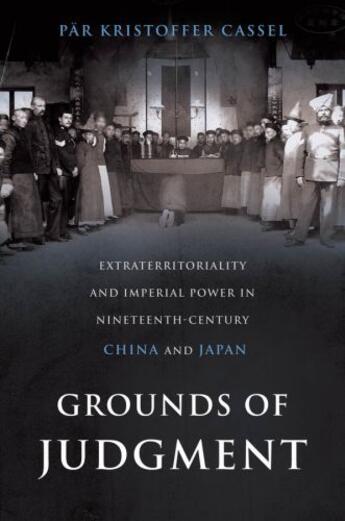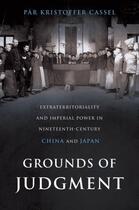-
Nombre de pages : (-)
-
Collection :
(-)
-
Genre :
(-)
-
Thème :
Non attribué
-
Prix littéraire(s) :
(-)
Résumé:
Perhaps more than anywhere else in the world, the nineteenth century encounter between East Asia and the Western world has been narrated as a legal encounter. Commercial treaties--negotiated by diplomats and focused on trade--framed the relationships among Tokugawa-Meiji Japan, Qing China,... Voir plus
Perhaps more than anywhere else in the world, the nineteenth century encounter between East Asia and the Western world has been narrated as a legal encounter. Commercial treaties--negotiated by diplomats and focused on trade--framed the relationships among Tokugawa-Meiji Japan, Qing China, Choson Korea, and Western countries including Britain, France, and the United States. These treaties created a new legal order, very different than the colonial relationships that the West forged with other parts of the globe, which developed in dialogue with local precedents, local understandings of power, and local institutions. They established the rules by which foreign sojourners worked in East Asia, granting them near complete immunity from local laws and jurisdiction. The laws of extraterritoriality looked similar on paper but had very different trajectories in different East Asian countries.
Par Cassel's first book explores extraterritoriality and the ways in which Western power operated in Japan and China from the 1820s to the 1920s. In Japan, the treaties established in the 1850s were abolished after drastic regime change a decade later and replaced by European-style reciprocal agreements by the turn of the century. In China, extraterritoriality stood for a hundred years, with treaties governing nearly one hundred treaty ports, extensive Christian missionary activity, foreign controlled railroads and mines, and other foreign interests, and of such complexity that even international lawyers couldn't easily interpret them. Extraterritoriality provided the springboard for foreign domination and has left Asia with a legacy of suspicion towards international law and organizations. The issue of unequal treaties has had a lasting effect on relations between East Asia and the West.
Drawing on primary sources in Chinese, Japanese, Manchu, and several European languages, Cassel has written the first book to deal with exterritoriality in Sino-Japanese relations before 1895 and the triangular relationship between China, Japan, and the West. Grounds of Judgment is a groundbreaking history of Asian engagement with the outside world and within the region, with broader applications to understanding international history, law, and politics.
Donner votre avis















